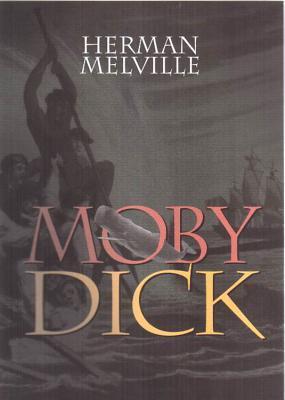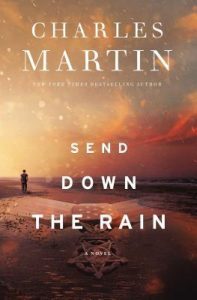Title: Moby-Dick
Author: Herman Melville
First published October 18, 1851
726 pages, Hardcover
ISBN: 9780785819134 (ISBN10: 0785819134)
Rating: 3.53
Overview
“Call me Ishmael.” With this iconic phrase, embark on an adventure of a lifetime with Captain Ahab and the crew of the Pequod, as they set out to capture the elusive white whale, Moby Dick. Ahab, driven by his insatiable thirst for revenge against the beast that took his leg, leads his crew through the treacherous waters in a dangerous pursuit.
His reckless obsession with Moby Dick threatens to destroy everything in its path, dragging his loyal crew along in his wake. Narrated by Ishmael, a member of the Pequod crew, readers are treated to an intimate glimpse of the excitement of whale hunting, the peculiarities of the ship’s crew, and the enigma of Ahab himself.
Can Ahab triumph over the embodiment of man’s struggle against nature? Can Moby Dick be destroyed once and for all?
Herman Melville’s masterpiece, filled with vivid descriptions and historical facts, is a thrilling ride that will leave you breathless.
About the Author
Did you know that Herman Melville was a multi-talented American writer? He dabbled in novels, short stories, essays, and poetry.
While his first two books didn’t quite make the bestseller list, they certainly caught people’s attention. Unfortunately, his popularity took a nosedive soon after, and by the time he passed away, he was almost entirely forgotten.
It’s interesting to note that his longest novel, which wasn’t well-received during his lifetime, actually ended up being rediscovered in the 20th century. Today, it’s considered one of the greatest literary masterpieces in both American and world literature.
Editoral Review
Moby-Dick by Herman Melville is a classic American novel, first published in 1851. Melville was an American writer, sailor, and lecturer who lived from 1819 to 1891.
Moby-Dick is often considered Melville’s most famous work and is a masterpiece of American literature. The book is a literary epic that combines adventure, philosophical musings, and historical context, and is a hallmark of the 19th-century American literary canon.
The novel is a complex exploration of the human psyche, as seen through the lens of the whaling industry. The book is set on a whaling ship, the Pequod, and follows the story of Ishmael, a sailor who is seeking adventure and meaning in his life.
He signs up for a long journey on the Pequod, under the command of the enigmatic Captain Ahab, who is obsessed with hunting down a giant white whale named Moby Dick. Along the way, the crew faces many challenges and conflicts, both internal and external, as they pursue their dangerous mission.
One of the main themes of the book is the struggle between man and nature. Melville uses the whale as a symbol of nature’s power and man’s desire to conquer it.
The novel also explores the themes of revenge, obsession, and the search for meaning in life. Melville’s writing style is highly descriptive and evocative, and he uses vivid imagery and symbolism to convey his ideas.
Despite its age, Moby-Dick remains relevant today, as it speaks to universal human experiences and emotions. The book is a meditation on the human condition and the search for meaning in life, themes that are still relevant today.
The novel also has historical significance, as it provides a glimpse into the whaling industry, which was a major part of American commerce in the 19th century.
In terms of its strengths and weaknesses, Moby-Dick is a masterful work of literature. Melville’s prose is beautiful and poetic, and his descriptions of the natural world are breathtaking.
The character development is also strong, particularly in the case of Ishmael and Ahab. However, the novel’s pacing can be slow at times, and the philosophical musings can be dense and difficult to understand.
Moby-Dick is often compared to other works of American literature, such as The Great Gatsby by F. Scott Fitzgerald and The Adventures of Huckleberry Finn by Mark Twain.
While these novels share some similarities in terms of their exploration of the American experience, Moby-Dick is unique in its focus on the whaling industry and its philosophical musings.
Overall, Moby-Dick is a must-read for anyone interested in American literature, philosophy, or the human experience. The book’s timeless themes and beautiful prose make it a classic that is still relevant today.
I would give Moby-Dick a rating of 4.5 out of 5 stars, based on its strengths in character development, writing style, and historical context.



